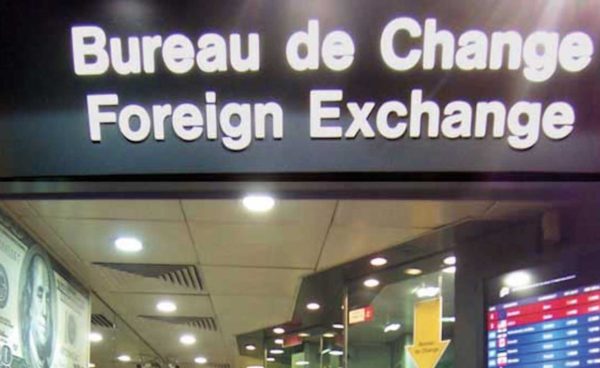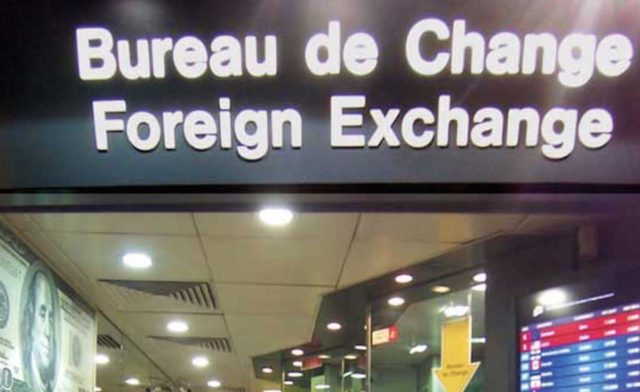Economic Issues
As CBN becomes Bureau de Change -By Evaristus Bassey


And now we have to capitulate to the economists. They have won. Rather than a fixed exchange rate, the naira is being thrown to market forces which will determine its “true” value. Already, it is being reported that consistently for a number of days, at the parallel market, the naira stood at 350 to the dollar. As we capitulate, we know that this is not the true value of the naira but a forced value, forced by low foreign exchange earnings, insider trading and round tripping and a panicky greedy elite which obsessively stockpiles the dollar.
I still sincerely believe that the naira is undervalued. Take a hair cut for instance. Where in the United States could you get a haircut for one dollar? Haircuts are done for $20 whereas you could get your hair cut for N200, which is the equivalent of the official rate. Or, where could you get a meal at one dollar? Yet, you could get mama put at N200 or less. Where could you have a taxi drop at $2? Yet, you could have a drop at N300. The purchasing power parity of the naira versus the dollar clearly shows that the naira is undervalued.
For a while, it made sense to peg the exchange rate. The Central Bank of Nigeria did all within its power to save the naira. All the measures it took would have been successful in some other country, but there is a factor exclusive to us as a people, the Nigerian factor, which would frustrate the best ideas of the common good and poison them with egotistic desires.
The fixed exchange was becoming too lucrative for those with official access to forex; civil servants on foreign trips, government officials on overseas medical treatment, and influential citizens with children schooling abroad. Bankers also had a field day as it was reported that behind the counter, they negotiated with importers who needed forex, made them sign off on the official rate, and collected the difference under the counter.
Ultimately, the nation was losing while a few individuals were getting rich. The wide gulf between the official and parallel market rates made it such that only a saint already living in heaven would not be tempted to devise means of taking advantage of the system.
Therefore, as the Monetary Policy Committee has decided to adopt a flexible exchange rate policy, it is perhaps better, not because the market rate is the real value of the naira but to eliminate the temptation and the corruption.
If government is going to retain a fixed exchange rate for critical sectors of the economy, it needs to be predetermined what those sectors are.
How are we sure that we wouldn’t recede to the Abacha days where whatever the Head of State needed at the time became critical, such that while others got forex at the higher official rate, favoured cronies were using fewer naira to buy forex, selling it off at the higher official rate and using the excess naira to buy more forex, in an endless opportunity cycle. What guarantee do we have that in a government which has made anti-corruption its main agenda of governance, there wouldn’t be a repeat of such abuse of access?
Even with the outgoing wide gulf between the official rate and the parallel market rates, there was an accusation levelled against a presidential aide of having made hundreds of millions of naira from the parallel market. Well, only a fool would go to the bank to change his forex at official rate when he or she had access to a legitimate platform that could give him more. Perhaps, to eliminate this hypocrisy, this double standard, the flexible exchange rate is welcome. But the new policy must be something that really benefits Nigerians. In my understanding, formerly, individuals in the CBN and the deposit money banks yanked off the profits; now, government, through the CBN, is going to be a mega Bureau de Change.
It means that rather than give the hard-earned dollars away to bank officials and their collaborators at ridiculous rates for them to devise means of smiling to their soak-aways (no more smiling to the bank since they now hide the money in soak-away pits), the CBN will sell forex to banks a little below the prevailing market rate.
In practical terms, in April, the CBN sold $669m to deposit money banks. Assuming it sold this at N198 to the dollar, it made only one naira atop the 197 window, and if the banks were to be faithful to sell this at N200 per dollar, would collectively make N1,338bn. But I am ready to sacrifice my head to bet that Nigerian bank officials are not that stupid and would find ways of making at least additional N50 out of every dollar.
Or even if they were stupid enough, those who got these monies wouldn’t be; they would find ways to perform miracles with it. So, now my understanding of a flexible exchange rate will be that, taking the figure of April, from $669m, instead of making a paltry N669m selling to banks, the CBN will make something like N200,700,000,000 if it sold the dollar at N300 each. With this amount of money coming in every month, the Minister of Information and Culture, Lai Mohammed, would have no excuse crying that government is broke, and he could take as much loans as possible from the various parastatals in the information and culture ministry and travel to Australia even.
Perhaps, this is a true manifestation of the truism that every disappointment is a blessing. Government should see forex trading as a business with huge profits and make as much money as it could from the business. The other worry would be putting the money into good use. Though I have not made a study of it, it seems that when special agencies are established, they accelerate infrastructural development faster.
The Petroleum Trust Fund did far more than the government was doing, at least it did the road to my village in addition to water-works. Contractors had more confidence in SURE-P because payment for work was guaranteed. Perhaps, whatever the CBN makes from this flexible exchange business should be put into a Special Infrastructure Fund and a board created to manage it. A special focus could be developing access infrastructure to tourism sites. How is the road to Mambilla Plateau or Yankari Game Reserve? Why can’t there be a fast train to Obudu Cattle Ranch?
How can we mouth about diversifying the economy and not be strategic in providing access infrastructure? Leaving the money as part of ministries would just be business as usual, and before long, the civil servants would show politicians the ways and means of siphoning all the money with nothing to show except poor roads constructed by usually corruptible Chinese companies and fifth rate imports from China.
If we are not careful, while Buhari is fighting corrupt past politicians, the corruption right under his nose could be the mother of all corruption. Let this government tell Nigerians what it will do differently with this flexible exchange bonanza.
Fr. Evaristus works at the Catholic Secretariat of Nigeria

















